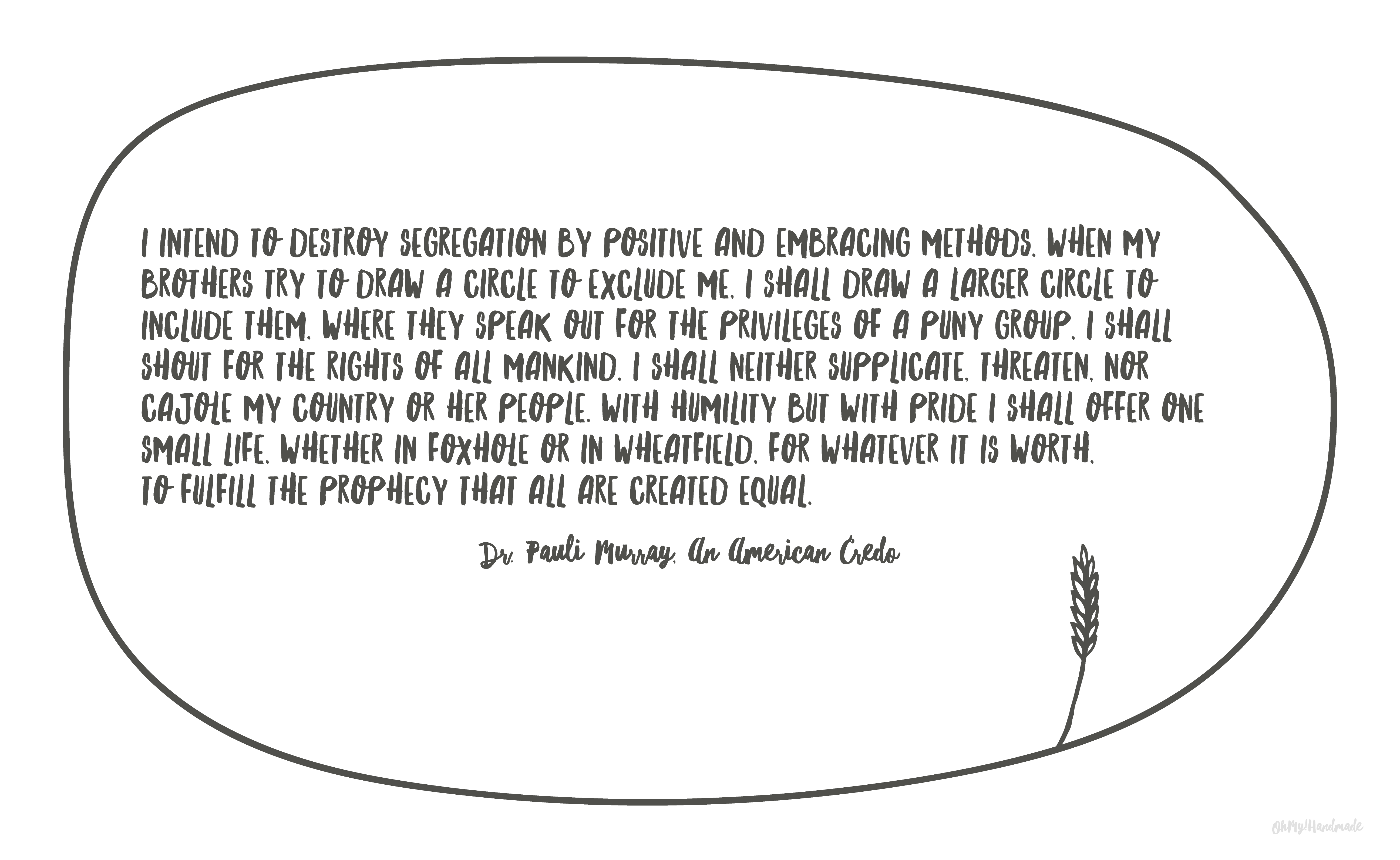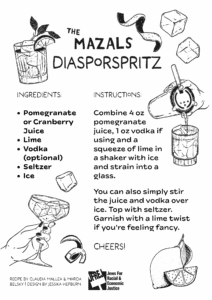
I intend to do my part through the power of persuasion, by spiritual resistance, by the power of my pen, and by inviting the violence upon my own body. For what is life itself without the freedom to walk proudly before God and man and to glorify creation through the genius of self-expression? I intend to destroy segregation by positive and embracing methods. When my brothers try to draw a circle to exclude me, I shall draw a larger circle to include them. Where they speak out for the privileges of a puny group, I shall shout for the rights of all mankind. I shall neither supplicate, threaten, nor cajole my country or her people. With humility but with pride I shall offer one small life, whether in foxhole or in wheatfield, for whatever it is worth, to fulfill the prophecy that all men are created equal.
Dr. Pauli Murray, An American Credo
Born in 1910 Dr. Pauli Murray outgrew every box that tried to contain her. In 1945 shortly after graduating from Howard Law School she wrote, “I will resist every attempt to categorize me, to place me in some caste, or to assign me to some segregated pigeonhole.” And she did resist all attempts to keep her confined by colour or gender, labels like Woman, Black, Native, White, Lesbian, would not stop her from earning degrees at Hunter College, Howard University, the University of California at Berkeley, Yale, and the General Theological Seminary, or from becoming the first black woman to be ordained an Episcopal priest at age 63.
Dr. Murray’s legal groundwork laid the foundation for ending discrimination on the basis of gender. In 1940 she was arrested in Virginia for refusing to move to the ‘coloured’ seats at the back of the bus, fifteen years before Rosa Parks made the action famous. Inspired by Christ and Gandhi she introduced non-violent protest to the Black civil rights movement ten years before Martin Luther King, later mentoring him while challenging the movement for how it excluded women from positions of power or leadership. A lifelong friend of Eleanor Roosevelt, openly gay, and extraordinarily gifted why has Dr. Pauli Murray been overlooked in history books and common knowledge? There are no good answers.
The very premise of citizenship, it’s bedrock and foundation is that all are created equal, sadly a truth only matters if we act as though it does. How can we change ourselves and be better citizens? Start with learning the stories of leaders like Dr. Pauli Murray, tell them to your children and your children’s children. Widen your circles to include others. Expand your understanding with diverse voices. Offer up the small stone of your life to the vision of a just, equitable, and compassionate world.
Citizenship is not a small circle, it is bigger than personal freedom, large enough to contain the world. Refuse any definition of citizenship that does not include everyone, there is no ‘us’ or ‘them’, there is only us.
We can’t leave this work to a brave few like Dr. Pauli Murray, it is up to each of us to look at who isn’t represented and extend a welcome. Have the presence of mind to ask one of the most important questions any citizen can: Who is not invited?
This question is the basis of inclusion, diversity, and real democracy. Start asking at every gathering and meeting, in board rooms and class rooms and on our streets: who is not invited, who was not included, what faces and stories were left out or overlooked?
Thing is, the space outside the circle was big enough for everyone all along. Remember when we were kids and the teacher would get us to take two giant steps back so everyone could fit? All we need to do to make a more inclusive world is take a couple steps back and draw a larger circle.

Further Reading:
- Dr. Pauli Murray, An American Credo
- Salon article on how Dr. Murray’s legal work has influenced Ruth Bader Ginsberg but been erased outside of academic circles.
- Audre Lorde, Sister Outsider
- More readings & reflections on citizenship and making a good life here.

